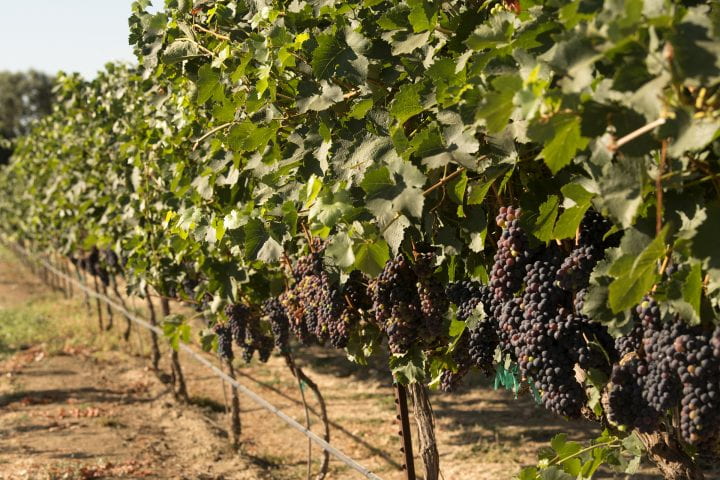Study reveals potential breakthrough in grapevine disease resistance
UC researchers pave way for climate-adaptive agriculture

Irvine, Calif., June 15, 2023 — A team of scientists – including UC Irvine’s Distinguished Professor of Ecology & Evolutionary Biology Brandon Gaut and UC Davis’ Professors of Viticulture & Enology Dario Cantù and Andy Walker – has made a significant breakthrough in the battle against a devastating disease affecting grapevines. Their study, recently published in Communications Biology, reveals the discovery of candidate genes for disease resistance in wild grape plants, offering hope for the future of the agriculture industry.
Xylella fastidiosa is a bacterium responsible for infecting various crops, including grapes, coffee, almonds, citrus and olives. This disease has posed a significant challenge for farmers worldwide, with no known resistant varieties in major crops. However, building on a long-term project at UC Davis, the research team focused their attention on a wild grape species, Vitis arizonica, which exhibits natural resistance to the bacterium.
Through genetic mapping and genome-wide association studies, the researchers identified potential genes that could be introduced into grapevines to enhance their resistance. These findings have the potential to revolutionize the agricultural industry, offering a solution to a multibillion-dollar problem caused by Xylella fastidiosa.
One intriguing aspect of the study is the correlation between resistance genes and climate. The researchers discovered that the resistant genes were predominantly found in warm climates, indicating that the pathogen’s presence is more prevalent in these regions. By projecting climate change scenarios, the team predicts the future impact of the disease on various crops, including grapes and almonds.
“This study highlights the importance of scientific research in addressing the challenges posed by climate change and plant pathogens,” said Gaut, who led the research at UCI. “Understanding the genetic basis of resistance and the influence of climate on disease prevalence is crucial for developing effective strategies to protect our crops and ensure food security.”
The implications of this research extend beyond grapevines and offer insights into the genetic mechanisms of resistance in other susceptible crops. By harnessing the power of genetics, genomics, and studying wild plant relatives, scientists can identify valuable resistance traits that could enhance crop resilience against Xylella fastidiosa and similar pathogens.
“Preserving, maintaining and genetically characterizing plant collections is paramount in our pursuit of discovering valuable genes for grape breeding programs,” said Cantù, who led the research at UC Davis. The study’s findings underscore the urgency of continued scientific research in agriculture, especially in the face of climate change. By unraveling the complex interactions between genes, pathogens and climate, researchers can develop targeted solutions to mitigate the devastating effects of plant diseases, safeguarding global food production.
The publication of this paper represents a significant milestone in the fight against Xylella fastidiosa and sets the stage for future advancements in crop protection and climate-adaptive agriculture. The collaboration between UCI and UC Davis scientists serves as a testament to the importance of interdisciplinary research in tackling pressing challenges.
About the University of California, Irvine: Founded in 1965, UCI is the youngest member of the prestigious Association of American Universities and is ranked among the nation’s top 10 public universities by U.S. News & World Report. The campus has produced five Nobel laureates and is known for its academic achievement, premier research, innovation and anteater mascot. Led by Chancellor Howard Gillman, UCI has more than 36,000 students and offers 224 degree programs. It’s located in one of the world’s safest and most economically vibrant communities and is Orange County’s largest employer, contributing $7 billion annually to the local economy and $8 billion statewide. For more on UCI, visit www.uci.edu.
Media access: Radio programs/stations may, for a fee, use an on-campus ISDN line to interview UCI faculty and experts, subject to availability and university approval. For more UCI news, visit news.uci.edu. Additional resources for journalists may be found at communications.uci.edu/for-journalists.
About the University of California, Davis: UC Davis is the most comprehensive campus in the University of California system, with four colleges and six professional schools that offer 107 undergraduate majors and 101 graduate and professional degrees. UC Davis enrolls about 39,000 students from more than 110 countries, contributes at least $12 billion to the California economy each year, and in 2021-22, secured over $1 billion in research funding.